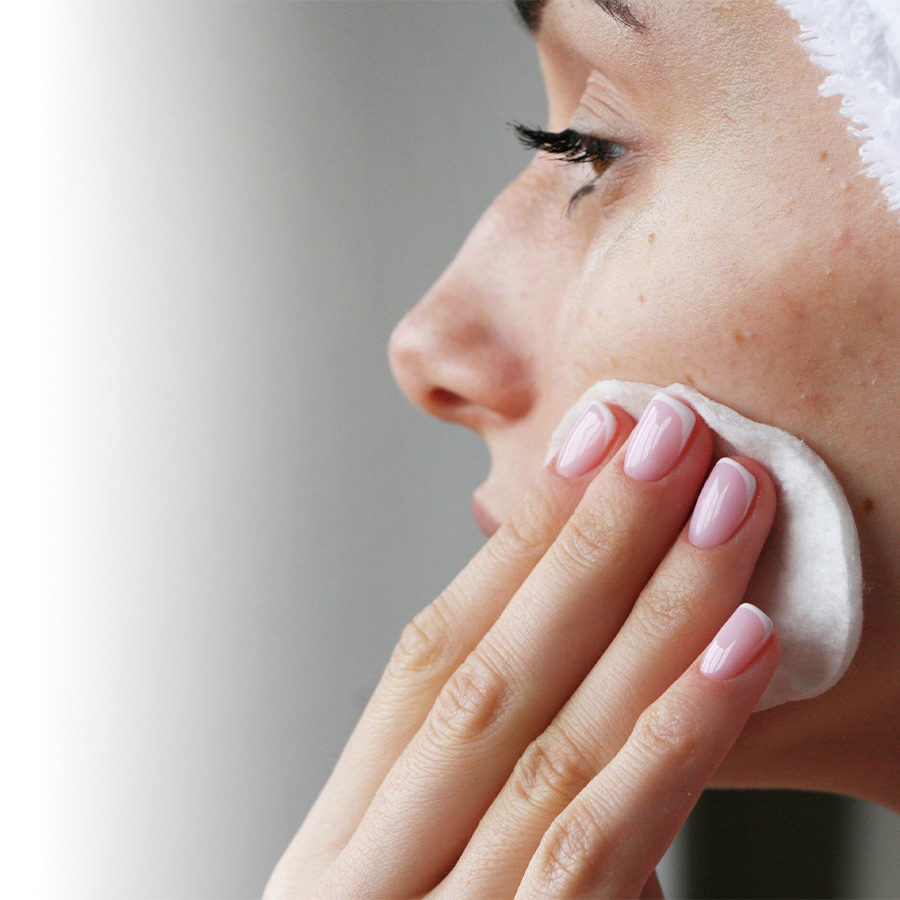Need a consultation related to the health condition discussed in this article? Schedule an appointment with your pharmacist at a time that works for you.
It can sometimes be difficult to distinguish between what is true and what is false when it comes to acne. Here is some information about some common misconceptions.
Acne: a normal concern
Nearly 80% of teenagers are affected by acne to some degree. While the problem often goes away on its own, it can also persist after adolescence. In fact, up to 25% of adults complain of occasional or chronic acne. This debunks the widespread myth that acne is age-related!
Acne is not a serious health problem in itself, but its worsening can lead to permanent lesions and scars. Therefore, it is normal, and even advisable, to take the necessary measures to treat acne when it occurs.
Some typical myths
1. Acne is caused by a fatty and sugar-rich diet.
Answer: GOOD QUESTION!
To date, it is unclear whether the quality of nutrition actually influences a person's susceptibility to acne. There is some evidence that certain foods may prevent or promote acne, but that doesn't mean it is the source of the problem. One thing is certain, choosing a healthy and balanced diet is always a guarantee of better health!
2. Exposure to the sun dries out pimples and improves acne
Answer: FALSE
Many people believe that exposure to the sun improves the appearance of acne-prone skin. In practice, this is often not the case. Tanning, and even more so, sunburn stimulate sebum production and secretion—which can lead to an acne breakout. So, it’s best to protect against the sun's rays by choosing a quality, oil-free, and non-comedogenic sunscreen for the face.
3. Acne makes it impossible to take hormonal contraceptives.
Answer: FALSE
In fact, nothing could be further from the truth! In many cases, the opposite effect is observed. While it is true that hormonal changes can sometimes cause the appearance of acne, the hormonal contraceptives available today have the advantage of often reducing common acne. So, acne is never contraindicated for hormonal contraceptives, quite the contrary. Speak to your doctor or pharmacist if you feel that your acne has gotten worse after starting a drug treatment.
4. Acne is most often caused by poor hygiene.
Answer: FALSE
Poor hygiene is never the cause of an acne problem. Rather, its onset can be explained by other factors, such as heredity and hormonal changes like those that occur during puberty. No one is immune to acne. However, it is true that poor hygiene or not removing make-up at night can worsen pre-existing acne.
On the other hand, cleaning your face too often or using abrasive products can also irritate the skin and lead to an increase of the number of lesions. Therefore, it is important to find the right balance and to focus on appropriate skin care measures, such as:
- cleaning the skin morning and night with a mild product adapted to acne-prone skin
- carefully removing make-up at night before going to bed
- gently exfoliating the skin to remove dirt and dead skin, which contribute to excess sebum
- moisturizing the skin with an oil-free, non-comedogenic product
Don't hesitate to speak to your pharmacist to learn more about acne or to choose the right treatment for your skin and your needs.

